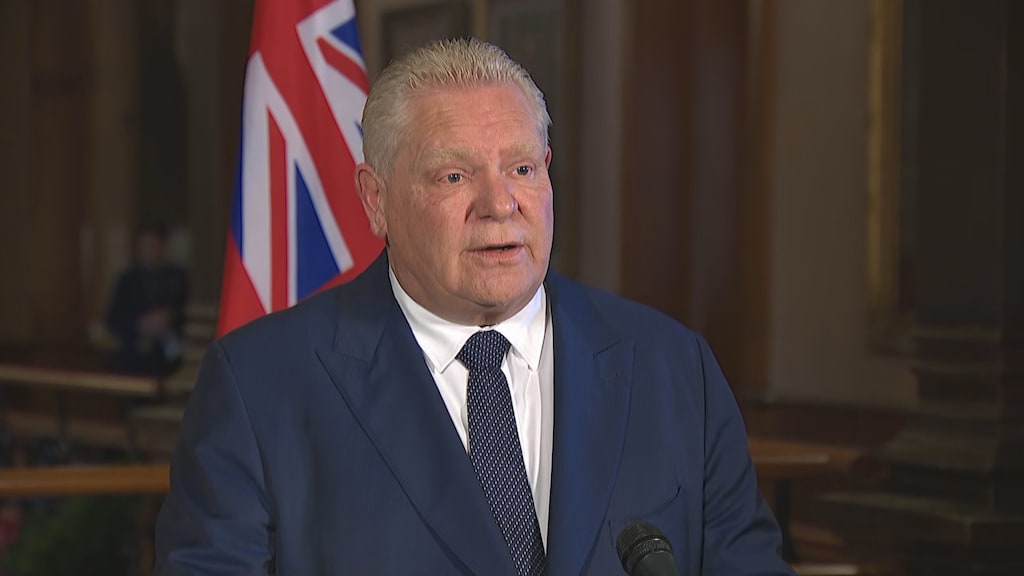Ontario Premier Doug Ford is stepping up efforts to counter U.S. President-elect Donald Trump’s looming tariff threats with a bold proposal to enhance Canada-U.S. energy ties. With Trump threatening to impose 25% tariffs on Canadian goods unless Canada strengthens border security, Ford is pushing for a “renewed strategic alliance” aimed at boosting energy exports and fostering closer integration between the countries’ electrical grids.
At the Darlington nuclear generating station on Wednesday, Ford outlined his plan to fortify North America’s energy security, positioning Canada as a key partner as the U.S. aims to “decouple from China.” He emphasized that achieving these goals would require long-term cooperation between Canada and the U.S., enabling both countries to emerge as stronger, more secure global players.
“This won’t be easy. It will require long-term thinking, dedication, and most of all, friends and allies. Canada is here to help,” Ford said, underscoring the potential benefits of such an alliance.
As part of the proposal, Ford advocates for the fast-tracking of approvals for large nuclear plants and small modular nuclear reactors in Ontario. He also envisions a collaborative effort between Canadian and U.S. lawmakers and industry experts to streamline the construction of cross-border energy infrastructure, such as transmission lines and pipelines.
Trump’s Tariff Threats Loom Large
Trump’s threat to impose tariffs on Canadian goods unless Canada takes stronger actions against illegal border crossings and fentanyl trafficking has sent shockwaves through Canadian industries, particularly in Ontario. Economists warn that such a move could severely disrupt supply chains, raise costs for businesses, and jeopardize thousands of jobs.
“These tariffs would be devastating for both our economies,” Ford said. “They would disrupt deeply integrated supply chains, create massive uncertainty for investors, raise costs for businesses, and put countless jobs at risk on both sides of the border.”
Ford’s rhetoric comes after Trump’s recent statements about potentially making Canada the “51st state.” These remarks, which Ford strongly condemned, have ignited a renewed focus on the political and economic relationship between the two countries.
Ford’s Retaliation Plan and Broader Response
In December, Ford suggested that Ontario might consider cutting off its energy supply to U.S. states such as New York, Michigan, and Wisconsin in retaliation for the tariff threat. He has also urged the federal government to develop a list of measures to counter Trump’s aggressive stance.
Ford’s media campaign includes appearances on U.S. cable networks like Fox News, where he highlights the deep economic and cultural ties between the two countries. His government is also spending millions on an ad campaign in the U.S. to reinforce these longstanding connections.
Meanwhile, NDP Leader Marit Stiles has vowed to “fight like hell” to protect Ontario workers if elected premier. The provincial Liberals are also calling for the legislature to be recalled and for an all-party committee to address the tariff threat.
As Ford and Canada’s provincial and territorial leaders prepare for a virtual meeting with Prime Minister Justin Trudeau to discuss the political turmoil in Ottawa, Ford remains at the forefront of the battle against Trump’s tariff threats, calling for unity and strategic action to safeguard Canada’s economic interests.
Source: The Canadian Press


